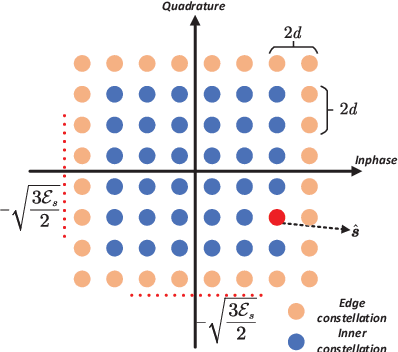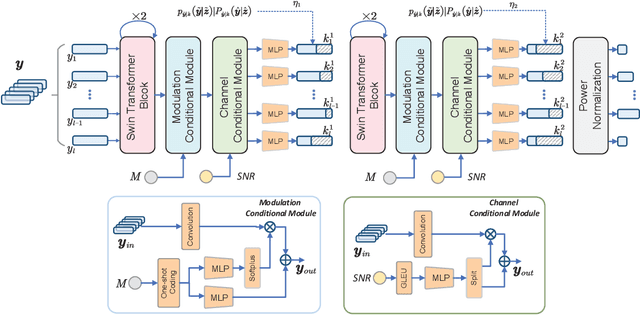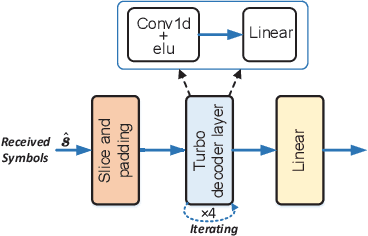From Analog to Digital: Multi-Order Digital Joint Coding-Modulation for Semantic Communication
Paper and Code
Jun 08, 2024



Recent studies in joint source-channel coding (JSCC) have fostered a fresh paradigm in end-to-end semantic communication. Despite notable performance achievements, present initiatives in building semantic communication systems primarily hinge on the transmission of continuous channel symbols, thus presenting challenges in compatibility with established digital systems. In this paper, we introduce a novel approach to address this challenge by developing a multi-order digital joint coding-modulation (MDJCM) scheme for semantic communications. Initially, we construct a digital semantic communication system by integrating a multi-order modulation/demodulation module into a nonlinear transform source-channel coding (NTSCC) framework. Recognizing the non-differentiable nature of modulation/demodulation, we propose a novel substitution training strategy. Herein, we treat modulation/demodulation as a constrained quantization process and introduce scaling operations alongside manually crafted noise to approximate this process. As a result, employing this approximation in training semantic communication systems can be deployed in practical modulation/demodulation scenarios with superior performance. Additionally, we demonstrate the equivalence by analyzing the involved probability distribution. Moreover, to further upgrade the performance, we develop a hierarchical dimension-reduction strategy to provide a gradual information extraction process. Extensive experimental evaluations demonstrate the superiority of our proposed method over existing digital and non-digital JSCC techniques.
 Add to Chrome
Add to Chrome Add to Firefox
Add to Firefox Add to Edge
Add to Edge